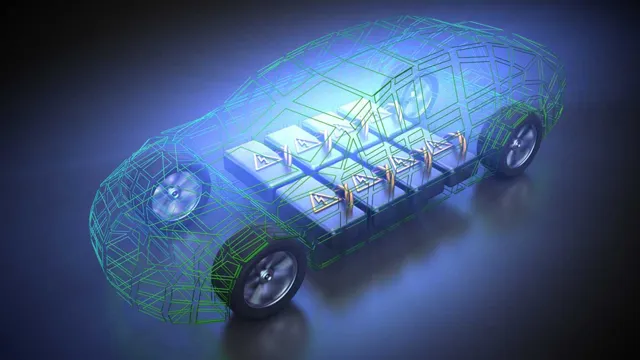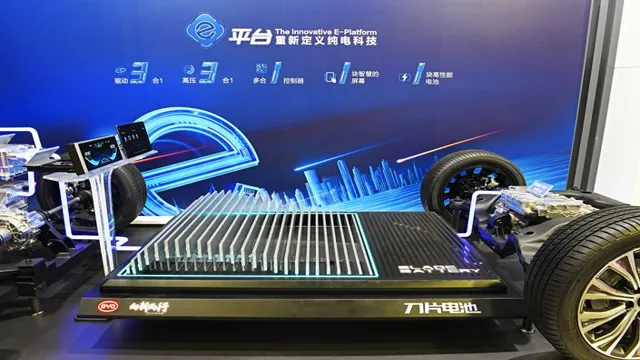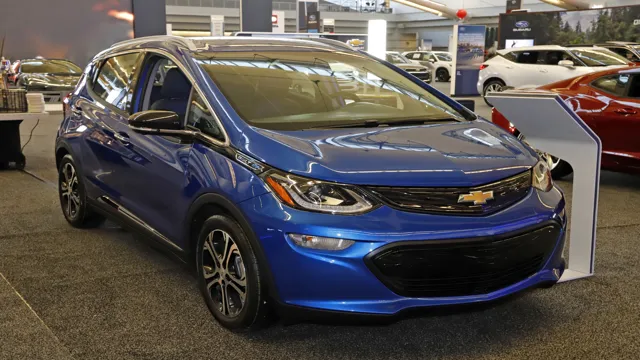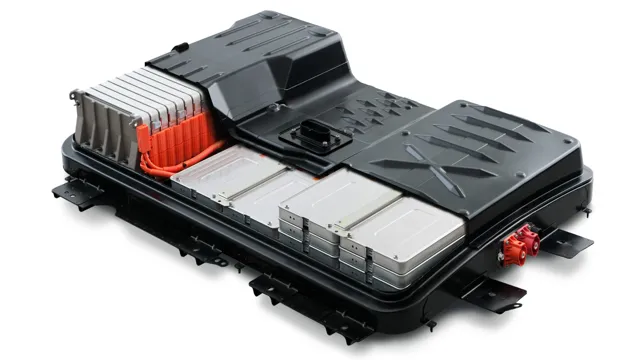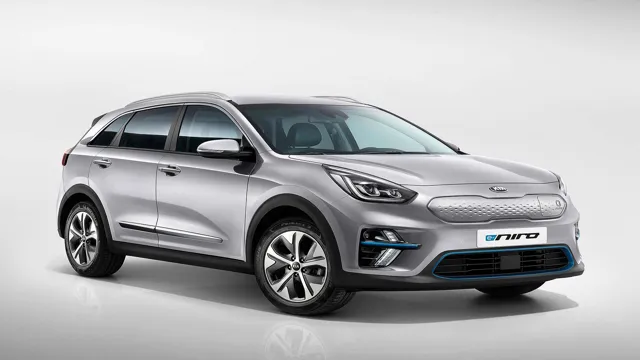The Power Play: Unveiling the Importance of Battery Size in Electric Cars
Electric cars are the stars of both the present and the future, offering a cleaner, more sustainable mode of transportation. One of the key differences between conventional and electric cars is the battery size. The battery size in electric cars impacts various aspects of the vehicle, such as driving range and performance, and the speed at which you can recharge your car.
Battery size is, therefore, a critical aspect to consider when buying an electric car. In this blog, we delve deeper into battery size in electric cars, factors that affect it, and why it matters. Keep reading to find out more!
Overview of Battery Capacity
When it comes to electric cars, the battery size is one of the most important factors to consider. The battery capacity determines how far you can go on a single charge and how much power the car can draw. Bigger batteries generally mean longer range and more power, but they can also cost more and take up more space.
A standard electric car battery pack today ranges from 40kWh to 100kWh. Generally, smaller cars will have smaller battery packs, while larger cars and SUVs will have larger packs. It’s important to note that battery size isn’t the only factor in range, as driving habits, weather, and terrain can also affect how far you can go on a single charge.
Overall, when considering an electric car, it’s important to weigh the battery size against factors like cost and charging infrastructure to determine what’s best for your needs.
Average range and battery capacity for popular electric cars
When it comes to buying an electric car, battery capacity is a crucial factor to consider. This determines not only how far your car can go on a single charge but also how long the battery will last. Most popular electric cars on the market today have a battery capacity that ranges from 40 kWh to 90 kWh.
The Tesla Model S has a battery capacity of 100 kWh, making it one of the most powerful electric cars in the market. On average, most electric cars have a stated range of 200 to 300 miles per charge, though some can go as far as 400 miles. Of course, the actual range you get will depend on a variety of factors, including driving conditions and your driving patterns.
So, before you buy an electric car, it’s important to consider your typical daily driving habits and choose a car that fits your needs. Overall, battery capacity is an important consideration that can greatly impact your driving experience with an electric car.
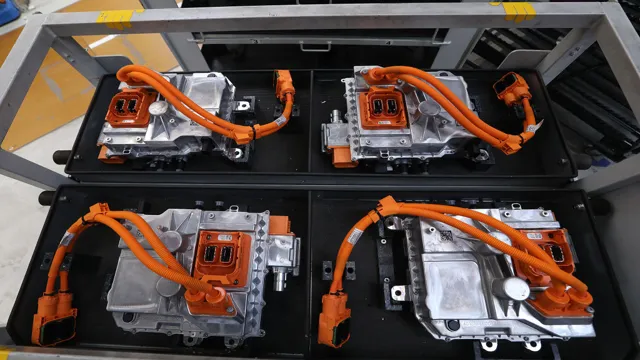
Factors that affect battery size and range
When it comes to electric vehicles, the battery is the heart of the car. Battery capacity is a crucial factor that determines the range of the vehicle. Bigger battery size means more storage capacity, which translates to a longer range.
Lithium-ion batteries are the most commonly used batteries for electric vehicles because they can store more energy than other types of batteries. However, the capacity of the battery is not the only factor that affects the range of the vehicle. Other factors, such as weight, aerodynamics, driving habits, and weather conditions also play a significant role.
For instance, heavy loads such as passengers or cargo can strain the battery’s capacity, reducing the range. Similarly, wind resistance and frequent stops and starts can affect the battery’s longevity. Therefore, it’s essential to consider these factors when choosing an electric vehicle and understand the battery’s limitations to maximize its range.
Battery Capacity vs Range
When it comes to electric cars, one of the most important things to consider is the battery size. The larger the battery, the more range the vehicle will have. However, it’s important to note that range can vary depending on several factors, such as driving habits, terrain, and weather conditions.
While a larger battery does offer more range, it does come with a trade-off in terms of weight and cost. That’s why some electric car manufacturers opt for smaller batteries that offer more efficiency and affordability, while others prioritize longer range and opt for larger, more expensive batteries. Ultimately, the decision on battery size comes down to the priorities and needs of the individual driver.
But one thing is clear- as battery technology continues to improve, electric cars are becoming more accessible and practical for everyday use.
Relationship between battery size and electric car range
When it comes to electric cars, the battery capacity directly affects the range the vehicle can go on a single charge. In other words, the bigger the battery, the further the car can travel. This is because the amount of energy stored in the battery determines how far the car can go without needing a recharge.
The relationship between battery capacity and range is not a linear one, though. While a larger battery will provide more range, it doesn’t necessarily mean it will double or triple the distance. Factors such as vehicle weight, aerodynamics, driving conditions, and weather all play a role in determining the range of an electric car.
However, advancements in battery technology continue to improve the efficiency and range of electric vehicles, making them an increasingly viable option for long-distance travel.
Comparison of battery capacity and range between different electric cars
When it comes to electric cars, battery capacity and range are two crucial factors to consider. The battery capacity determines how long the car can run without recharging, while the range tells you how far you can go on a single charge. Different electric cars have different battery sizes and ranges, which impacts their overall performance and usability.
For instance, the Tesla Model S has a battery capacity of 100 kWh and a range of 402 miles, making it one of the most efficient and long-range EVs on the market. On the other hand, the Nissan Leaf has a smaller battery (40 kWh) and a shorter range (149 miles), making it more suitable for daily commuting rather than long-distance driving. When choosing an electric car, it’s essential to consider your usage and needs to find the best fit for you.
Importance of battery size in practical use and long-term ownership
The battery size of an electric vehicle plays a crucial role in both practical use and long-term ownership. Battery capacity and range go hand in hand, and it is essential to consider both factors when purchasing an electric car. The battery capacity is the amount of energy stored in the battery, measured in kilowatt-hours (kWh).
On the other hand, the range is the distance that an electric vehicle can travel between charges. Generally, the larger the battery capacity, the higher the range an electric car can achieve. Moreover, a larger battery size means a more extended period between charging sessions, reducing the hassle of frequent stops for recharging.
When it comes to long-term ownership, battery capacity and range also impact the depreciation rate and resale value of an electric vehicle. As battery technology continues to improve, newer models with larger battery sizes and longer ranges tend to hold their value better than their predecessors. This means that owning an electric car with a larger battery size would result in a better return on investment in the long run.
In conclusion, battery size is a crucial factor to consider when buying an electric car. A larger battery size means longer ranges and reduced charging stops, making it more practical for everyday use. Additionally, it improves the vehicle’s resale value, making it a better investment in the long run.
Battery Size Technology
One of the most critical aspects to consider when it comes to electric cars is battery size. The battery is the heart of an electric vehicle, and its performance heavily impacts the car’s range and overall efficiency. In recent years, there have been significant advancements in battery technology, allowing for larger and more energy-dense batteries to fit into smaller areas.
This is great news for electric car owners as it means extended range and fewer charging requirements for their vehicles. Battery size plays a crucial role in determining the power output of the electric motor, which, in turn, affects the acceleration and top speed of the car. As battery technology continues to evolve, we can expect to see even larger and more efficient batteries able to fit in more limited spaces.
With the rise of electric vehicles, battery size is becoming a more important aspect, and it is likely that we will see rapid advancements in this technology in the future.
Advancements in battery technology and capacity
With the rise of electric vehicles and the ever-increasing demand for high-powered devices, battery technology has become more sophisticated and advanced than ever before. One of the most significant advancements in battery technology is the increase in battery size. Modern batteries now have much larger capacities than their predecessors, enabling longer runtimes and more extended use before recharging is necessary.
This technology is particularly exciting for electric vehicles, as larger battery sizes translate to greater driving ranges. With technological advancements happening rapidly, the demand for even larger and more sophisticated batteries is continually increasing, and experts are tirelessly working to innovate new and improved batteries to keep up with demand. The future looks bright for battery technology, and we can expect to see even more significant advancements in the coming years.
Limitations and trade-offs of increasing battery size
When it comes to increasing battery size, there are many trade-offs to consider. While a larger battery can mean longer periods between charges and more power overall, it also typically means a heavier and bulkier device. In addition, larger batteries may take longer to charge and can lead to increased heat generation, which can be damaging to the device and potentially even dangerous.
Furthermore, as battery technology improves and becomes more energy-efficient on its own, there may be diminishing returns to increasing battery size. Ultimately, there is a delicate balance between battery size, device size, and energy efficiency that manufacturers must strike in order to provide the best possible experience for consumers and to keep up with the demands of the market.
Future of Battery Size in Electric Cars
As the market for electric cars continues to grow, the future of battery size is a hot topic among car manufacturers and consumers alike. A larger battery size allows for longer driving ranges and the ability to charge less frequently. However, larger batteries also come with a higher price tag and added weight, which can impact the overall performance and handling of a vehicle.
As technology advances, many experts predict that battery sizes will continue to increase while costs decrease. This will allow electric cars to become more practical for everyday use and further reduce our dependence on fossil fuels. With companies such as Tesla leading the charge, the future of battery size in electric cars looks promising, and we can expect to see even more innovative solutions in the years to come.
Conclusion
In conclusion, the size of the battery in an electric car is a critical factor that determines the range and performance of the vehicle. With larger batteries, you can go further and faster, but they also come at a higher cost. So, it’s a balancing act between the price, range, and efficiency.
It’s like choosing the perfect avocado – you want it to be just the right size, not too big, not too small, and packed with all the right nutrients. After all, no one likes a mushy avocado, just like no one likes a sluggish electric car with a drained battery.”
FAQs
What is the typical battery size in an electric car?
The typical battery size in an electric car is around 60-100 kilowatt-hours (kWh).
How does the battery size affect the range of an electric car?
The larger the battery size, the longer the range of an electric car. For example, a car with a 100 kWh battery can travel up to 400 miles on a single charge, while a car with a 60 kWh battery may have a range of around 250 miles.
Do different electric car models have different battery sizes?
Yes, different electric car models have different battery sizes. Some smaller models may have a battery size as small as 24 kWh, while larger and more expensive models may have a battery size of up to 130 kWh.
How does the battery size affect the cost of an electric car?
Generally, the larger the battery size, the more expensive the electric car. This is because the battery makes up a significant portion of the total cost of the vehicle. However, larger battery sizes also provide longer ranges and more power, which may be worth the higher cost for some drivers.

